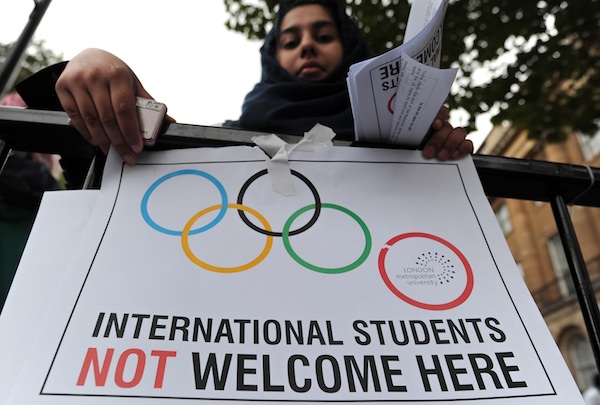Yesterday came the news that net migration has once again fallen, this time to its lowest level for ten years. In the year ending September 2012, net migration was 153,000. That is a fall of 89,000 on the previous year when it reached a dizzy 242,000.
This is undeniably good news. The public have consistently shown their desire to see net migration reduced and we now have a government which is committed to lowering net migration and has so far had considerable success.
Many on the left, who cannot bring themselves to admit that net migration of 200,000 per year is too much for a small island such as ours, continue to perpetuate the idea that, in the process of reducing net migration the government is harming the economy. Fortunately for the rest of us, there is very little evidence to back this up. It is high time that was made clear.
For three consecutive quarters, Sarah Mulley of the IPPR has tried to suggest that falling net migration is the result of a reduction in international students which is not only harming the UK economy but will also prove to be ultimately futile since fewer students arriving means fewer students leaving in the future. See here, here and here.
Once again, we find ourselves explaining why the IPPR is wrong.
As a rule a reduction in inflows will lead to a reduction in outflows further down the line as there will be fewer people to leave. However, this argument makes a significant and incorrect assumption when applied to the reduction in students witnessed over the last year or so – that all of those students who have been prevented from arriving in the UK would have left at the end of their course, which is of course incorrect.
Contrary to what Sarah Mulley claims, there is plenty of evidence of significant abuse of the student route which we have pointed out here. When the Labour government’s points based system (PBS) was first introduced in 2008, student applications had to be temporarily suspended in some parts of South Asia amid fears that the dramatic rise in applications was fuelled in part by fraudulent applications. In the first year of Labour’s Points Based System (PBS) alone the National Audit Office estimated that between 40,000 and 50,000 ‘students’ entered the UK to work and not study.
And just last year the Home Office found that 48 per cent of Pakistani students and 59 per cent of Indian students who were interviewed as part of a pilot scheme would have potentially been refused a visa on credibility grounds.
The vast majority of these potential refusals were applying for further/higher education and not university.
That is no doubt why the fall in student visas over the last year has come not from the university sector but in the Further Education/College sector, where the majority of abuse has been identified. Moreover, the fall in students was largely from Pakistan and India which saw a 62 per cent and 38 per cent decrease year on year respectively. This is unsurprising given the evidence of abuse as noted above.
The graph below shows this very clearly:
The reality is that bogus students are being prevented from studying in the UK – something we should all celebrate. Meanwhile, university applications are up 5 per cent and work visas (Tier 2) are also up 7 per cent. The government’s progress is something to be celebrated – net migration is coming down without any significant damage to business or higher education. There remains much more to be done but let us offer at least two cheers for the government’s considerable achievements so far.
Sir Andrew Green is Chairman of Migration Watch.







Comments